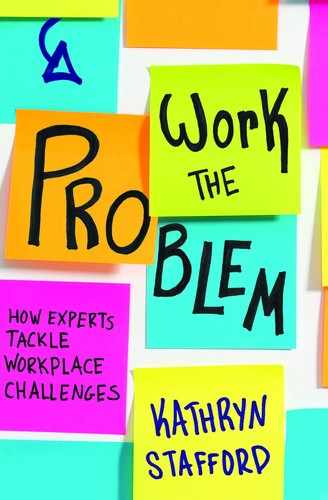TAKE 1
Commentary by Tom Kaiden
Tom Kaiden is the chief operating officer of Visit Alexandria, in Alexandria, Virginia.
This case raises the question, “What can you do as a middle manager when there is poor leadership at the top?”
Until recently, the New Leaf Foundation had enjoyed a strong reputation as a bulwark of the community. But there’s clearly trouble afoot. Cara, the newly appointed CEO, just spent $17 million to buy land for a new building, with board approval, but without a budget or development plan for the building itself. Cara has a fundraising background, yet seems suddenly unwilling to participate in the core fundraising aspect of her job. The organization is now running a multimillion-dollar deficit. The board is divided over the organization’s new direction. Senior leaders are leaving the organization. There is little transparency from, or accessibility to, the leadership team. With leadership failure on many fronts, this is an organization on the brink of crisis.
Both Cara and Neil are diverting resources (time, money, people) into their pet projects—a new building and a rebranding effort—which both seem unnecessary. As a reader, I’d love to say that this case is unrealistic, because who would do that? But sadly, situations like this are more common than we would like to admit. New executives, senior leaders, and board members often believe that they have a mandate for change, and so will look for a project on which they can put their stamp. Buildings and rebranding campaigns are common examples of such projects. It would be great to think that because nonprofits are mission driven, they are immune from excess, but there are plenty of examples of executive hubris in communities all across the country.
So, what is Meredith to do?
In the short-term, she should accept Cara and Neil’s invitation to walk with them to the board meeting. She needs to expressly ask Cara to join her on the call to the prospective donor for middle-school music education funding. And then she needs to get that date on Cara’s calendar. Meredith seems reluctant to join Cara and Neil, because of both the imminent timing of the board meeting and the perception of a personal relationship between them. But this is the moment she has access, so she needs to use it. And Cara and Neil’s relationship is speculative and irrelevant.
Beyond this short-term situation, there is another reason Meredith needs to attend the board meeting. The board is the key to righting the ship at New Leaf. The members are currently divided, and Meredith, for her own career security, should take this opportunity to assess the board’s appetite and capacity to rein in the CEO. Boards are often reluctant to insist on executive change, particularly if the leader is so new in tenure. This case is complicated by the board’s complicity in approving the land purchase without a budget for construction or a development plan to pay for it.
It’s said that the first rule of holes is, “When you’re in one, stop digging.” If I were Meredith, I would want to determine how likely the board is to step in and demand a course correction. She has an opportunity in this moment to see them in action, and she should take it.
If the board seems divided and hesitant to act, she should look at updating her resume and exploring other options. A major gifts officer is highly dependent on an active CEO to achieve her goals. In this case, Meredith lacks the attention and participation of the advancement officer and CEO, which will make her job impossible. Moreover, the organization is moving rapidly from a position of strength to one of financial instability and mission drift. On this current course, there is a high likelihood that Meredith will be tarnished by the organization’s reputational fall, so getting out sooner rather than later makes sense. Given the similar actions taken by other senior leaders, the best career path forward might be an immediate change.
Certainly, no organization, job, leader, or employee is perfect. The question for all of us is whether we have the authority and resources for positive change within our current role. When external forces beyond our control have mounted to such an extent that we cannot overcome them, then job change is the rational path forward. That’s the issue that Meredith must ultimately address.
